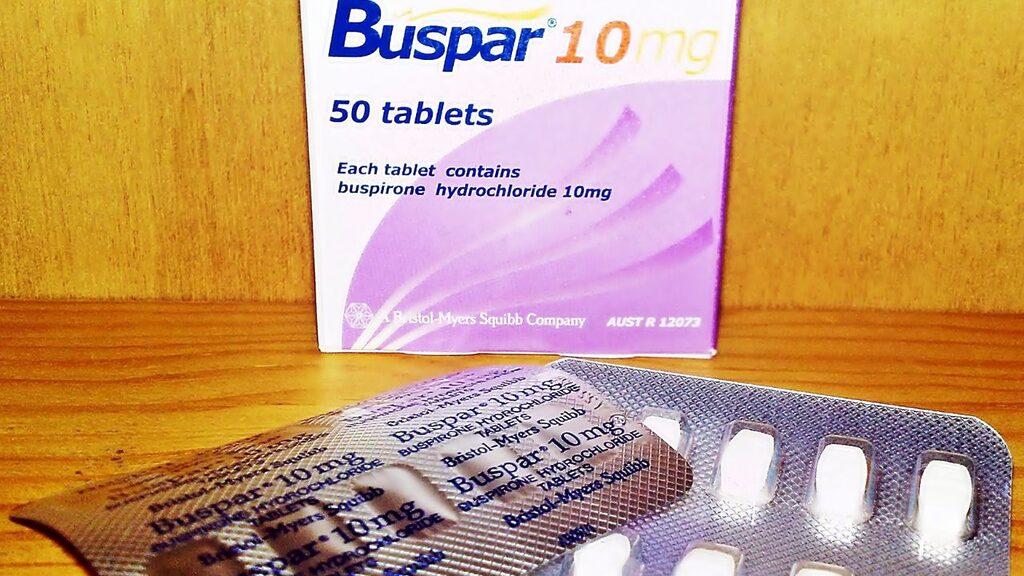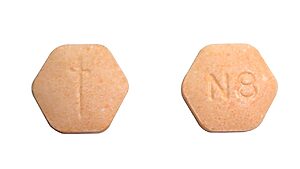Buspirone, sold under the brand name Buspar, is a prescription medication used to treat anxiety disorders and relieve short-term symptoms of anxiety. As mental health concerns continue to rise, it’s crucial to understand the properties of the medications used to treat these conditions, including their potential for addiction. In this article, we’ll explore whether buspirone is an addictive drug, discuss its intended use, and examine the risks associated with its abuse.
What is Buspirone and How Does it Work?
Buspirone is classified as an anxiolytic, meaning it reduces anxiety. Unlike benzodiazepines, another class of anti-anxiety medications, buspirone does not have sedative or hypnotic effects. It works by affecting neurotransmitters in the brain, specifically serotonin and dopamine, to help alleviate anxiety symptoms. Buspirone is thought to increase the activity of these neurotransmitters, which can help regulate mood and reduce feelings of anxiety.
Intended Use and Effectiveness
The medication is typically prescribed for generalized anxiety disorder (GAD) and is often used as a short-term treatment. GAD is characterized by excessive, persistent, and unrealistic worry about everyday things, which can interfere with daily functioning. Buspirone can help alleviate these symptoms and improve overall quality of life. However, it is not recommended for treating panic disorders or obsessive-compulsive disorder (OCD), as it has not been found to be effective for these conditions.
Advantages of Buspirone Over Other Anti-Anxiety Medications
One of the main advantages of buspirone over other anti-anxiety medications is its lower risk of dependence and abuse. Buspirone is generally considered a safer alternative to benzodiazepines, which have a higher potential for addiction and can cause significant side effects, such as drowsiness, dizziness, and impaired coordination.
Is Buspirone Addictive?
Buspirone is not a controlled substance, and studies have shown that it has a low potential for abuse and addiction compared to other anti-anxiety medications. The drug does not produce the euphoric effects often associated with addictive substances, and it does not lead to cravings or compulsive use. This is because buspirone does not act on the brain’s reward system in the same way as addictive drugs, such as opioids or stimulants.
Risks of Buspirone Misuse
However, while buspirone is considered non-addictive, it is essential to note that any medication can be misused. Some individuals may attempt to abuse buspirone by taking higher doses than prescribed or combining it with other substances to achieve a heightened effect. This type of misuse can lead to adverse side effects and potentially dangerous consequences.
Signs of Buspirone Abuse
Signs of buspirone abuse may include taking the medication more frequently or in larger doses than prescribed, feeling a strong desire to use the drug, and continuing to use it despite negative consequences. Individuals who misuse buspirone may also engage in “doctor shopping,” which involves visiting multiple healthcare providers to obtain multiple prescriptions for the drug or other substances.
Withdrawal Symptoms and Physical Dependence
If an individual develops a physical dependence on buspirone, they may experience withdrawal symptoms such as anxiety, irritability, and difficulty sleeping when they stop taking the medication. However, these withdrawal symptoms are generally less severe than those associated with benzodiazepines or other addictive substances.
Importance of Using Buspirone as Prescribed
It’s important to remember that while buspirone has a low potential for addiction, it should only be used as prescribed by a healthcare professional. Misusing any prescription medication can be harmful and may lead to serious health complications. Individuals should never share their prescription medications with others, as this can also contribute to misuse and potential addiction.
Seeking Help for Buspirone Addiction at Texas Recovery Centers
If you or someone you know is struggling with buspirone addiction or any other substance abuse issue, seeking professional help is crucial. At Texas Recovery Centers, we offer comprehensive addiction treatment programs tailored to each individual’s unique needs. Our experienced staff provides a supportive and compassionate environment to help clients overcome their challenges and achieve lasting recovery.
Treatment Options for Buspirone Addiction
Treatment for buspirone addiction may include a combination of behavioral therapies, such as cognitive-behavioral therapy (CBT) and individual counseling, as well as medication-assisted treatment if necessary. CBT can help individuals identify and change negative thought patterns and behaviors related to substance abuse, while individual counseling provides a safe space to explore the underlying causes of addiction and develop coping strategies.
Take the First Step Towards Recovery
Don’t let addiction control your life. Take the first step towards recovery today by calling Texas Recovery Centers at 888-354-2194. Our dedicated team is here to answer your questions, provide guidance, and help you begin your journey to a healthier, substance-free future. Remember, seeking help is a sign of strength, not weakness, and with the right support and resources, recovery is possible.
While buspirone is considered a non-addictive drug with a low potential for abuse, it is still important to use it only as prescribed and under the guidance of a healthcare professional. If you or someone you know is struggling with buspirone addiction or any other substance abuse issue, don’t hesitate to reach out for help. Texas Recovery Centers is here to provide the compassionate, evidence-based care you need to overcome addiction and reclaim your life.













